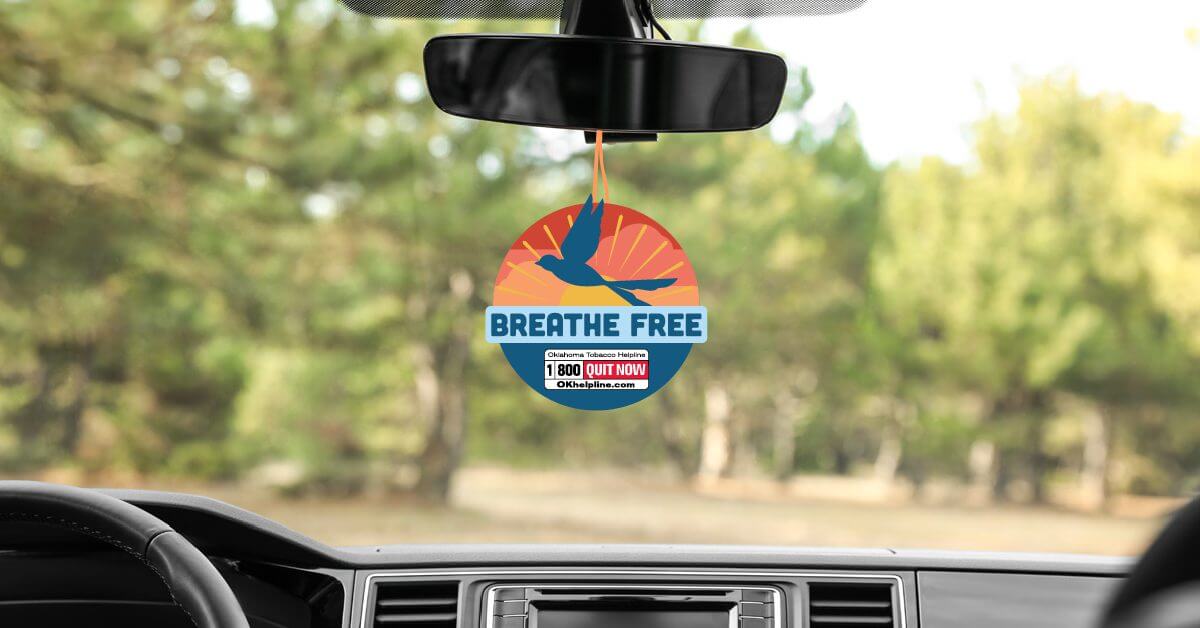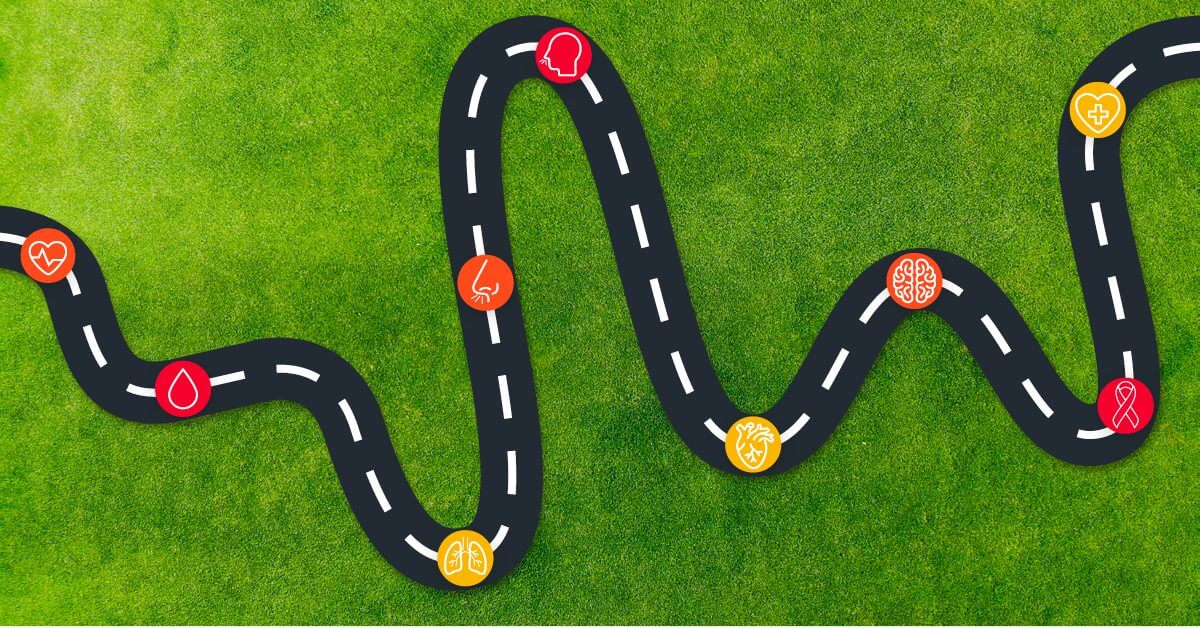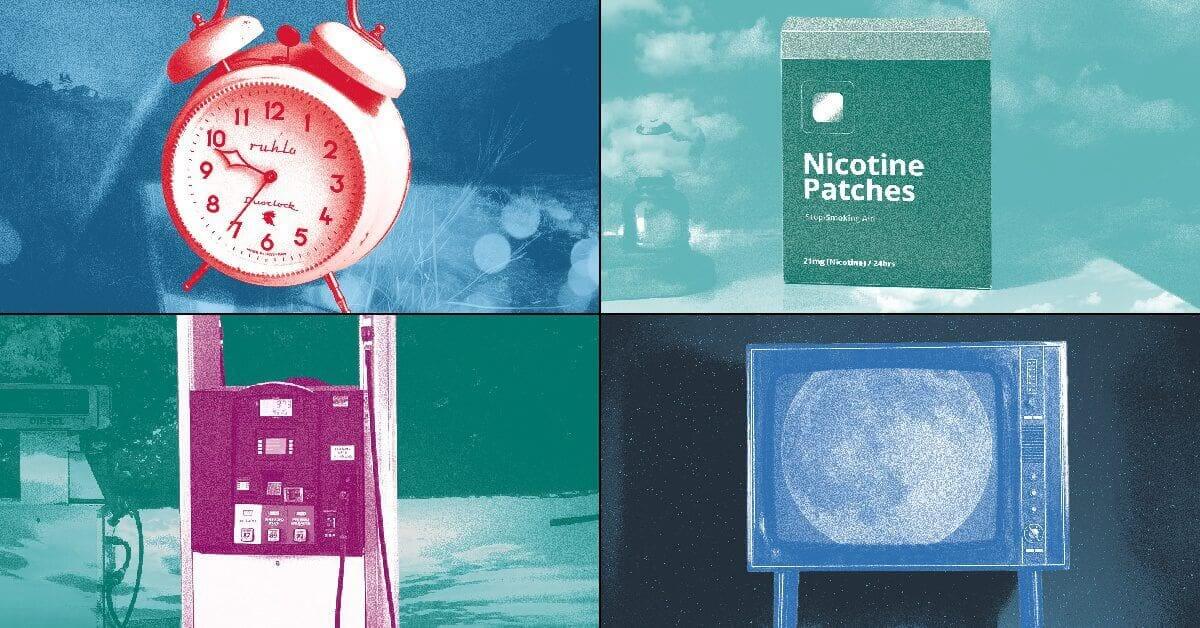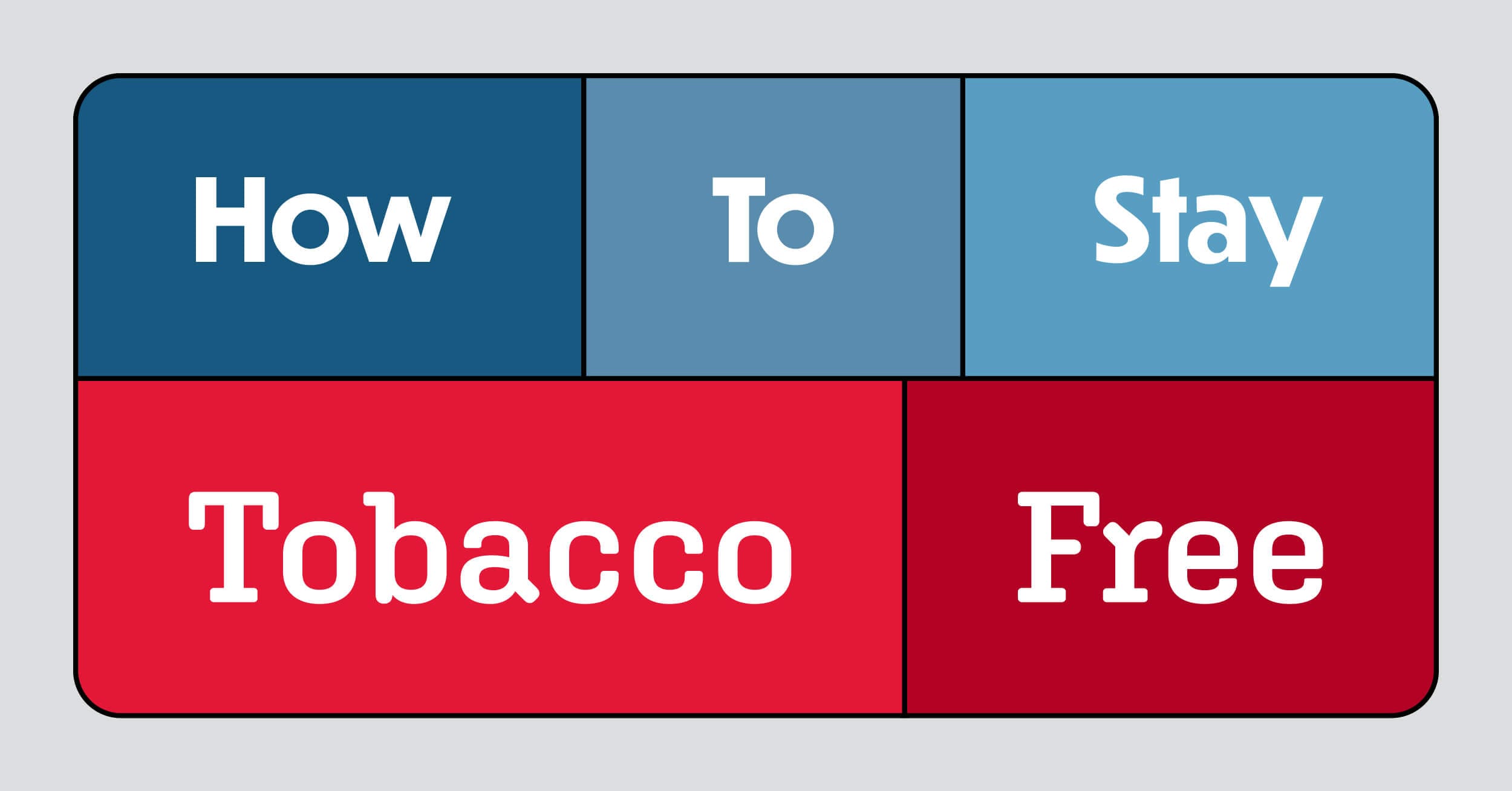What To Expect When You Quit Tobacco
Quitting tobacco is a huge step — and with it comes a lot of change. Here’s what to expect and how to cope.

What To Expect When You Quit Tobacco
Deciding to quit tobacco is a huge step — and along with it comes anxiety and uncertainty about the future. You may already be asking yourself questions like: “How will I feel after I quit?” “What to expect when you quit tobacco?” and “Are the benefits of quitting worth the drawbacks?” That’s a normal part of the process!
The quit journey can be a long and winding road filled with twists, turns and speedbumps, but you can ease your mind with a little information about what lies ahead. Here’s what to expect when you quit tobacco.

The Timeline of Change
So, what exactly happens to your body when you quit tobacco? Here’s what you may experience:
- 20 minutes after you quit tobacco, your heart rate will decrease.
- 1 day after you quit tobacco, the carbon monoxide levels in your blood will drop to normal.
- 1 week later, your sense of taste and smell may improve.
- 2 weeks – 3 months after quitting, your lung function will significantly improve. You’ll be breathing deeper with better circulation.
- 1 – 9 months later, your risk of lung infection will tremendously decrease. You’ll also experience less coughing, wheezing or shortness of breath than before.
- 1 year after quitting, your risk of heart disease will be cut IN HALF.
- 5 years after quitting, you will no longer be at increased risk of mouth, throat or esophagus cancer. Your risk of stroke will also greatly decrease.
- 10 years after quitting, your risk of dying from lung cancer will be cut IN HALF. Your risk of pancreatic disease will also plummet.
- 15 years after you quit, your risk of heart disease will be equal to that of a nonsmoker.

Symptoms & Solutions
Now that you know what will happen inside your body, let’s look at a few barriers you’ll have to overcome. The first few days and weeks of your tobacco-free journey will be full of roadblocks, and sometimes, you’ll feel like you’re driving through a construction zone. In frustrating moments when you want to give up completely, remind yourself that these feelings are signs that your body is adjusting to its new normal. Here are a few things to expect, along with some tips for powering through to your next mile marker.
- Cravings – This is the most common symptom. After you quit, the desire to light up a cigarette, buy a can of dip or hit a vape will come in strong waves. Sometimes they’ll be triggered by your environment (smelling cigarette smoke, feeling left out, driving). Other times, they’ll be brought on by your emotions (stress, anxiety, hunger, etc.). The good news? Most cravings only last a few minutes! When temptation strikes, try one of these activities — or take the craving buster quiz to find a trick that works for you!
- Insomnia – If you used tobacco to relax, getting a good night’s sleep might feel impossible at first, but this symptom will be temporary. A good way to sleep better at night is to get active during the day! Even just a few minutes of activity each day — such as walking, biking, dancing or gardening — can make it easier for your body to relax once your head hits the pillow.
- Feelings of Anger – When you quit tobacco, negative emotions like anger and frustration may be heightened. Make a plan of action before they strike, like listening to music, getting some fresh air or talking to a friend you trust.
- Increased Appetite – Once nicotine leaves your body, you might find yourself snacking more than usual. That doesn’t have to be a bad thing if you make healthy choices! Stock your fridge with pre-cut fruits and veggies you can grab on the go — and if you start to feel hungry between snacks or meals, stay satisfied with water.
Some less-common effects that you may experience are cold- or flu-like symptoms, dizziness, constipation and/or mouth ulcers. Forming a daily routine, managing stress and eating healthy food are all great ways to fend off cravings as you endure this big adjustment. Also, talking with your doctor and relying on free nicotine replacement therapy from the Helpline can make the transition easier. For more tips on surviving your first month, check out this 31-Day Quit Calendar.
Start Your Quit Journey
Remember: You are not alone on this journey, and the results will be beyond worth it. Keep your head up and power through. You can do this! For FREE resources and support, sign up here or call 1-800-QUIT NOW.



